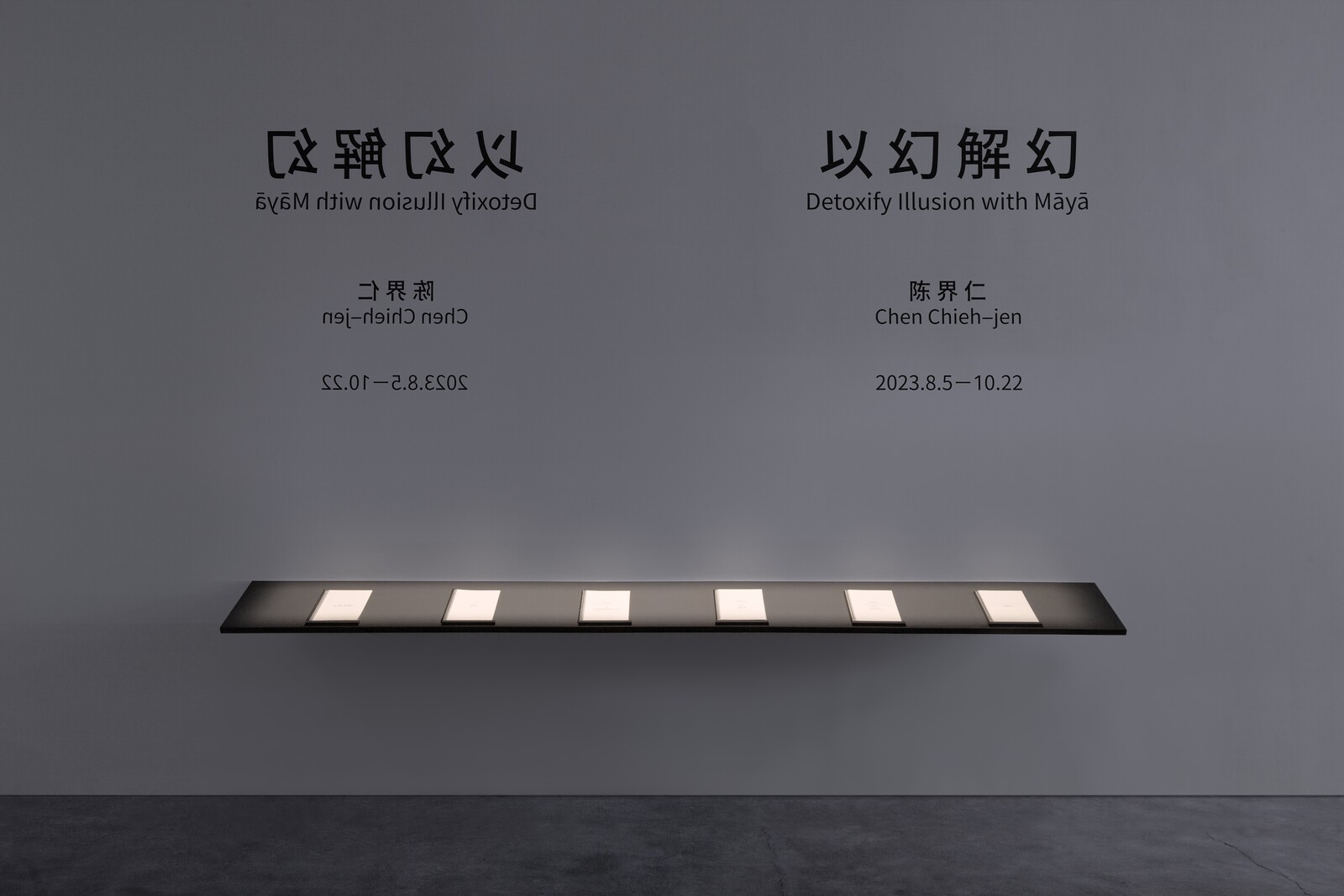Detoxify Illusion with Māyā
August 5–October 22, 2023
Middle First St. 798 Art District, 4 Jiuxianqiao Road, Chaoyang District
100015 Beijing
China
Hours: Tuesday–Sunday 10am–6pm
T +86 10 5978 9768
F +86 10 5978 9764
lm@longmarchspace.com
So I vow that until all of them have achieved enlightenment, only then will I attain Supreme Wisdom. —Prabhacaksuh (a previous incarnation of the Ksitigarbha Bodhisattva)
From August 5 to October 22, 2023, Chen Chieh-jen’s solo exhibition “Detoxify Illusion with Māyā” will be presented at Long March Space, featuring three of the artist’s latest video works from the past two years: In a World Losing Multiple Worlds I, In a World Losing Multiple Worlds II (2022) and Worn Away (2022–23), as well as six documents.
An empire constructed by a corporatocracy of multinational financial-capital corporations, military-industrial complexes, and digital and biotech giants manipulates the world’s perceptual pathways, senses, desires, and the mindset of the vast majority of the world’s population through a pervasive control technology that is run through the global Internet system.
The top 81 billionaires, those who run the corporatocracy, own more than half of the world’s wealth. More than one-eighth of the world’s population (about one billion people) suffer from mental health-related disorders. As the neocolonialism / new caste system of the empire becomes a reality, beginning with Notes on the Twelve Karmas (1999–2000 / re-edited 2018), Chen Chieh-jen has brought to life poignant and sensuous meditations that reflect on the possibilities of the multitude, which, increasingly ostracized by the acceleration of this centrifugal machine, now confronts the question of how to rebuild its subjectivity and reshape society in an era that pretends towards transparency, while effectively tightening supervision and control. The long-term art project Her and Her Children includes an introduction, In a World Losing Multiple Worlds I & II, a prologue, Worn Away, a first chapter, A Field of Non-Field (2017), and prospective chapters that engage a network of related subjects from different aspects. These video works can be experienced independently, or watched sequentially to create a cohesive dialogue and discussion that reverberates through the pieces.
The creation of illusion has always been a crucial technique of the empire, one used to manipulate human perception. But unlike Plato’s famous allegory of the cave, in which illusion and reality are regarded as absolute opposites, the empires of the present operate by way of a deliberate confusion of the two. They enact a qualitative transformation of certain progressive viewpoints, conjuring something that is harmless to the empire, but that corrodes true political economy, etc., while also luring the multitude into a labyrinth of pseudo-multiculturalism and self-consuming internal struggles. Our perception of the world, our very ability to perceive it accurately, determines the futures we imagine. Whether we develop methods of breaking away from the empire’s pervasive control technology is not only a vital issue to politics in the broad sense of the word, it is also an essential part of each person’s mandate to construct their own subjectivity. It is the reason why art is necessary.
For Chen Chieh-jen, confronting the empire’s pervasive control technology demands a reevaluation of fundamental issues in human society, including the concept of “illusion.” To address this, Chen Chieh-jen draws on the Buddhist perspective of “māyā” (illusion) to unravel the empire’s construction of illusion. Māyā refers to the notion of all things being in a state of constant flux. It is the operating principle and reason why all things unite, form, exist, decay and pass away. Understanding this notion, one realizes that all things come from interdependence and interaction, or what the Buddha called Tathatā. The Buddha’s primary concern in presenting this dialectical view was to break down the caste system that had been constructed by the Brahmin class through a vast mythological narrative. By pointing out that nothing has an absolute, unchanging nature, the Buddha is saying that sentient beings (all species included) are equal, and no distinctions can be made concerning blood, race, or culture.










